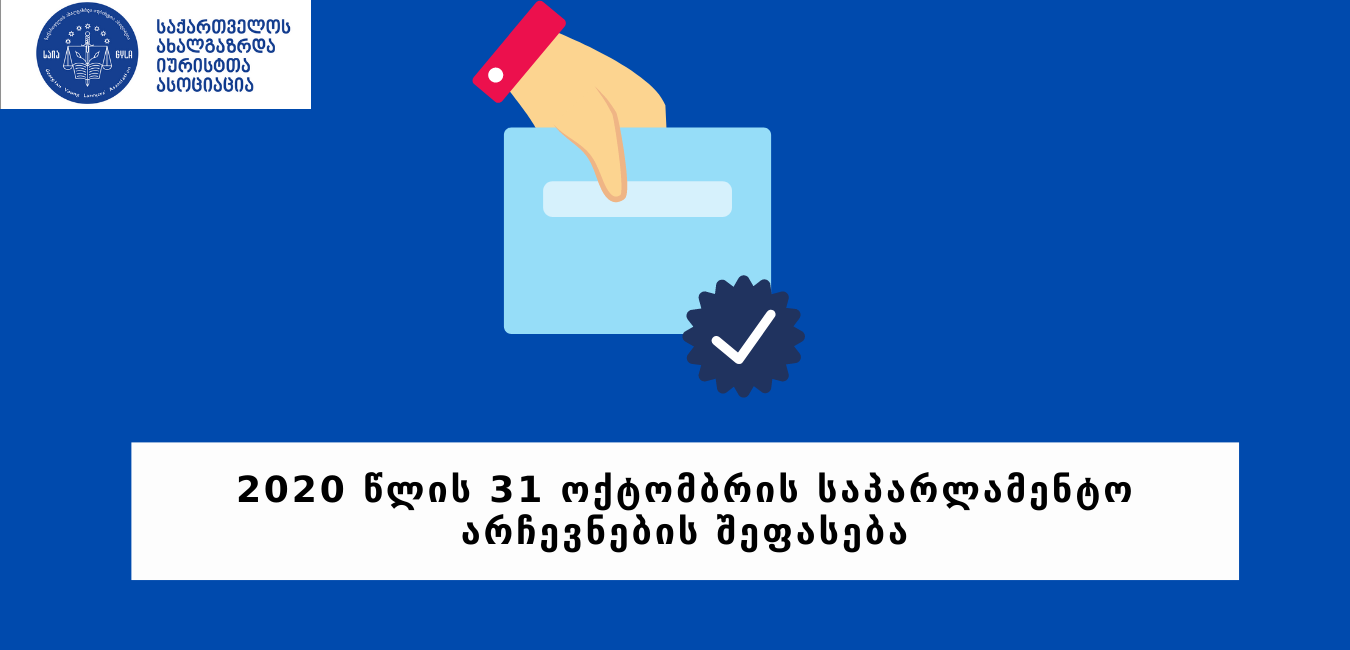NEWS

In the opinion of the GYLA, the day of the parliamentary elections of 31 October 2020 passed with significant shortcomings at every stage of the polling day. The tense atmosphere during the day affected both voter behavior and the monitoring of the process itself. Violence and problems related to free expression of voters’ will are among the leading characteristics of yesterday’s elections. Added to this is the disorganization of precinct election commissions (PECs), including in the area of enforcement of the rules issued to contain the pandemic.
The polling day revealed negative trends that were related to:
The GYLA’s ability to observe certain precincts was limited. There were incidents when our observers became objects of aggression and physical assault. In a number of cases, the observers were not allowed to enter a remark in the log-book and register a complaint at the precinct. Two observers were forced to leave the precincts.
An observer of the GYLA became an object of pressure from the united opposition and organizations affiliated to them.
In the second half of the day, the tense atmosphere was especially evident at polling stations and in areas outside them, which, in some cases, grew into physical confrontation and violence. There were cases of violence against journalists and interference with their activities, which the GYLA assessed negatively and called on the MIA to respond in a timely and effective manner.
Incidents of alleged vote buying were observed in areas adjacent to polling places in Kareli and Khashuri (the observers identified cases of hand-to-hand transfer of money).
Disorganization of PECs was a trend. This was felt especially clearly at the time of fulfillment of rules established for ensuring health safety, which hindered the polling process and, also, caused an increase in the number of procedural violations.
The cycle of violations also continued after the closing of the polls. At the time of counting the votes, the commissions failed to balance summary protocols in a timely manner. In some cases, more ballot papers were issued than is confirmed by signatures.
There were many cases when PECs sent unsealed log-books and other documentation to district commissions.
The GYLA has also given a negative assessment to the delay of the publication of summary protocols of voting results by the CEC, which gave rise to a feeling of manipulation among voters.
The GYLA continues the post-election day monitoring (studying summary protocols of PECs and observation of the process of summarization of voting results at higher election commissions). The organization is planning to prepare the final report that will evaluate both the pre-election period and the Election Day.
The GYLA’s Observation Mission on the polling day
The Georgian Young Lawyers’ Association was observing the elections of the Parliament of Georgia of 31 October 2020 with more than 800 observers across the country. Ultimately, the mission covered up to 2,250 precincts in total.
The GYLA paid a particular attention to the observance of electoral procedures (the process of opening of the polls, voting, and summarization of voting results) and, also, monitored the developments unfolding in areas adjacent to polling stations. In connection with revealed violations, the organization also used the mechanism of strategic litigation in district election commissions and courts.
On Election Day, the GYLA also operated a hotline number for journalists and media organizations. By calling at the hotline, journalists and media organizations could receive information they were interested in and legal consultation regarding electoral procedures, violations on the polling day, and ways of responding to them.
The hotline number is 577 36 15 20.
During the day, the GYLA held four press conferences regarding the process of Election Day observation at the NGO Media Center. The press conferences were held at 10 AM, 2 PM, 6 PM, and 9 PM. One more conference was held at 12:30 PM on November 1.
The GYLA’s monitoring mission of the polling day of the parliamentary elections was made possible with the funding of the embassies of Norway and Great Britain, the EU Delegation to Georgia, and the Open Society Georgia Foundation. The opinions expressed in the statement are those of the Georgian Young Lawyers’ Association and its content may not express the views of the donor organizations.
SHARE: